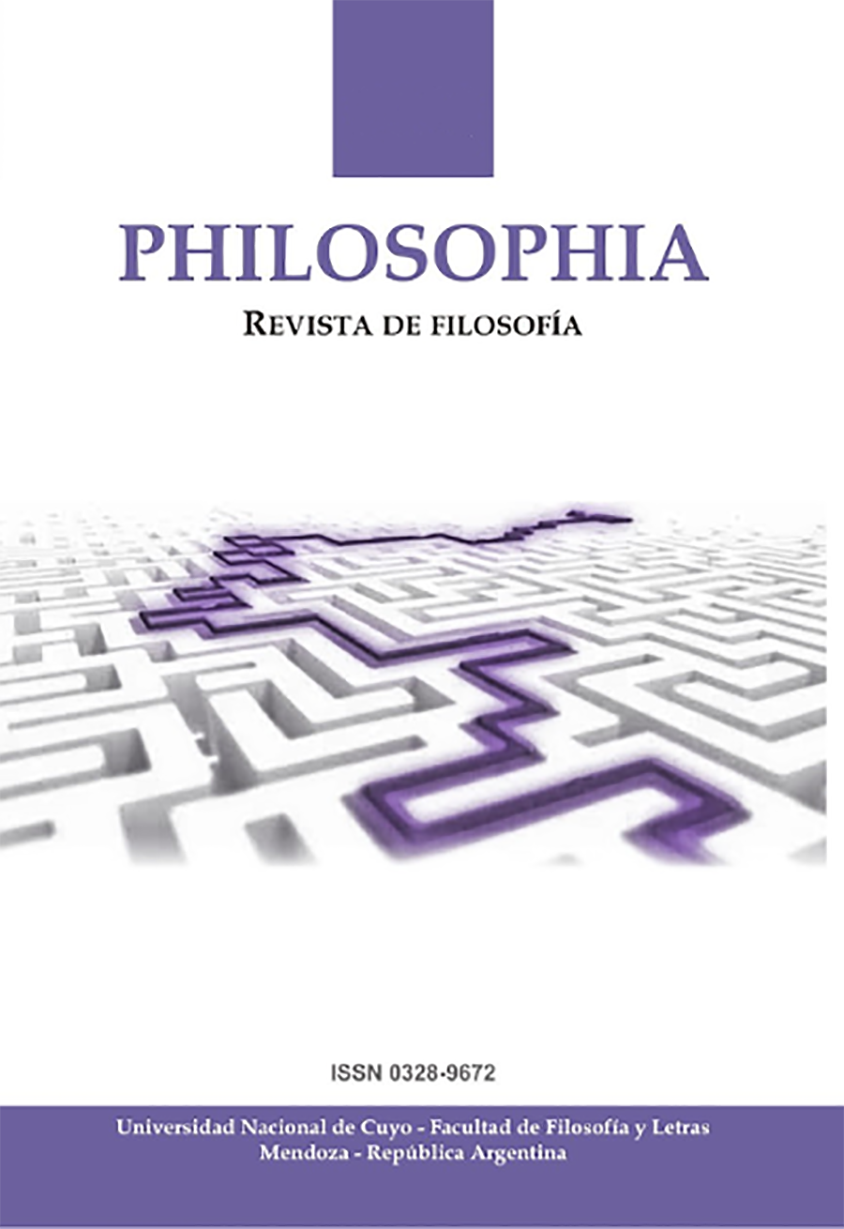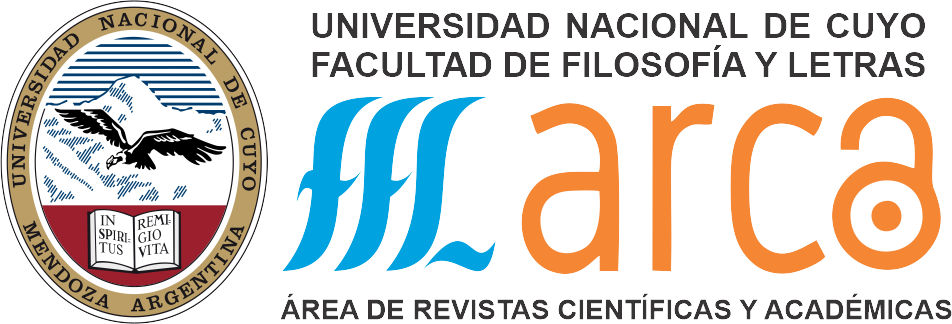Approach to the Notion of Paideia in Evagrius Ponticus’s Work
DOI:
https://doi.org/10.48162/rev.50.015Keywords:
paideia, new paideia, wisdom, Evagrius PonticusAbstract
This article proposes the investigation and deepening of the concept of paideia limited to the work of Evagrius Ponticus, an author of meridian importance in the framework of early Christianity, a historical period in which, according to Werner Jaeger, a real "new paideia" was constituted, which inherited and redefined the classical Greek paideia. In this context, Evagrius Ponticus himself was trained in the classical paideia, and was also one of the main authors who redefined it, following the line of his teacher Origen, himself a disciple of Clement of Alexandria, the first expositor who explicitly proposed a new paideia: the paideia Christi.
References
Altaner, B. Patrología. Madrid: Espasa-Calpe, 1956.
Bourton-Christie, D. The Word in the Desert. Scripture and the Quest for Holiness in Early Christian Monasticism. Oxford: Oxford University Press, 1993.
Cicerón. Disputaciones Tusculanas. Madrid: Gredos, 2005.
Clemente de Alejandría. El Pedagogo. Madrid: Gredos, 1998.
Clemente de Alejandría. Stromata. https://ia801707.us.archive.org /22/items/clemente-de-alejandri-a-stromata/CLEMENTE%20DE%20A LEJANDR%C3%8DA%20STROMATA.pdf
Davis, S. “Evagrius Ponticus at the Monastery of the Syrians: Newly documented evidence for an Arabic reception history”. Heirs of the Apostles Vol. 1 (2019): 349-394.
Derisi, Octavio. Naturaleza y vida de la Universidad. Buenos Aires: Eudeba, 1972.
Evagrio Póntico. Le gnostique ou a calui qui est devenu digne de la science. París: Edición, traducción y comentarios de Antoine Guillaumont y Claire Guillaumont, 2008.
Evagrio Póntico. Obras espirituales. Madrid: Ciudad Nueva, 1995.
Evagrio Póntico. “Scholies aux Proverbes”. Sources Chrétiennes 340 (1987).
Evagrio Póntico. Scholies aux Psaumes, tome I (Psaumes 1-70). París: Cerf, 2021.
Evagrio Póntico. Scholies aux Psaumes, tome II (Psaumes 71-150). París: Cerf, 2021.
Evagrio Póntico. “Sur les pensées”. Sources Chrétiennes 438 (1998).
Evagrio Póntico. Traité pratique. París: Ed. Antoine Guillaumont y Claire Guillaumont, 1971.
Filón de Alejandría. “De Sobrietate”. En Obras Completas Tomo II. Buenos Aires: Acervo Cultural, 1976.
Filón de Alejandría. “Quod omnis probus liber sit”. En Obras Completas Tomo V. Buenos Aires: Acervo Cultural, 1976.
Foucault, M. Les aveux de la chair. París: Gallimard, 2018.
Guillaumont, Antoine. Un philosophe au désert. Évagre le Pontique. París: Vrin, 2009.
Hadot, P. Ou’ est-ce que la philosophie antique? París: Gallimard, 1995.
Jaeger, W. y E. Frost. Cristianismo primitivo y paideia griega. Ciudad de México: Breviarios del Fondo de Cultura Económica, 1974.
Jaeger, W. Paideia: los ideales de la cultura griega. México: Fondo de Cultura Económica, 2001.
Kalvesmaki, J. “Guide to Evagrius Ponticus”. http://evagriusponti cus.net/
Larsen, L. y S. Rubenson. Monastic Education in Late Antiquity. The Transformation of Classical Paideia. Cambridge: Cambridge University Press, 2018.
Long, A. y D. Sedley. The Hellenistic philosophers. Cambridge: Cambridge University Press, 1987.
Muehlberger, E. “Affecting Rhetoric: The Adoption of Ethopoeia in Evagrius of Pontus’ Ascetic Program”. En Monastic Education in Late Antiquity. The Transformation of Classical Paideia, editado por L. Larsen y S. Rubenson, 182-194. Cambridge: Cambridge University Press, 2018.
Peretó Rivas, R. “ACT (Acceptance and Commitment Therapy) y Evagrio Póntico. Algunas correspondencias teóricas”. Cauriensia 12 (2017).
Peretó Rivas, R. Evagrio Póntico y la acedia. Berna: Peter Lang, 2018.
Quasten, J. Patrología, Tomo I. Madrid: BAC, 1968.
San Clemente Romano. “Carta de Clemente de Roma a los Corintios”. Catholic.net. http://es.catholic.net/op/articulos/7348/carta-de-clem ente-de-roma-a-los-corintios.html#modal (Consultado el 28-12-2022)
Séneca. Epístolas morales. Madrid: Luis Navarro, 1884.
Stefaniw, B. “Exegetical Curricula in Origen, Didymus, and Evagrius: Pedagogical Agenda and the case for Neoplatonist Influence”. Studia Patristica 44 (2010): 288.
Tobon M. “The health of the soul: Apatheia in Evagrius Ponticus”. Studia Patristica XLVII (2010): 191.
Tobon, M. “Words Spoken in Silence: the ‘Missing Chapters’ of Evagrius’ Kephalaia Gnostika”. Studia Patristica LXXII (2014).
Trevijano, R. Patrología. Madrid: BAC, 1994.
Tzamalikos, P. The Real Cassian Revisited: Monastic Life, Greek Paideia, and Origenism in the Sixth Century. Leiden: Brill, 2012.
Vazquez, S. “Vida moral y Sabiduría en el pensamiento de Evagrio Póntico”. Contrastes. Revista Internacional de Filosofía Vol. XXIV-Nº3 (2019).
Vazquez, S. “Aportes para una Historia de la Metáfora del Espejo. El Horizonte Logo-Terapéutico de su Tematización en Evagrio Póntico y otros Autores Tardoantiguos”. Revista de Historia de la Psicología Vol. 40 (2019).
Vergara, F. “La paideia griega”. Universitas Philosophica Nos. 11-12 (1989): 158.
Young, R. “Evagrius the Iconographer: Monastic Pedagogy in the Gnostikos”. Journal of Early Christian Studies Vol. 9, N° 1 (2001): 53-71.
Downloads
Published
How to Cite
Issue
Section
License
Copyright (c) 2023 Jorge Bosco

This work is licensed under a Creative Commons Attribution-NonCommercial-ShareAlike 3.0 Unported License.
Se permite la reproducción de los artículos siempre y cuando se cite la fuente. This work is protected under license Attribution-NonCommercial-ShareAlike 3.0 Unported (CC BY-NC-SA 3.0) You are free to: Share "” copy and redistribute the material in any medium or format; Adapt "” remix, transform, and build upon the material
The licensor cannot revoke these freedoms as long as you follow the license terms.
Under the following terms:
Attribution "” You must give appropriate credit, provide a link to the license, and indicate if changes were made. You may do so in any reasonable manner, but not in any way that suggests the licensor endorses you or your use.
NonCommercial "” You may not use the material for commercial purposes.
ShareAlike "” If you remix, transform, or build upon the material, you must distribute your contributions under the same license as the original.
No additional restrictions "” You may not apply legal terms or technological measures that legally restrict others from doing anything the license permits.
For more information, please visit: https://creativecommons.org/licenses/by-nc-sa/3.0/deed.en






